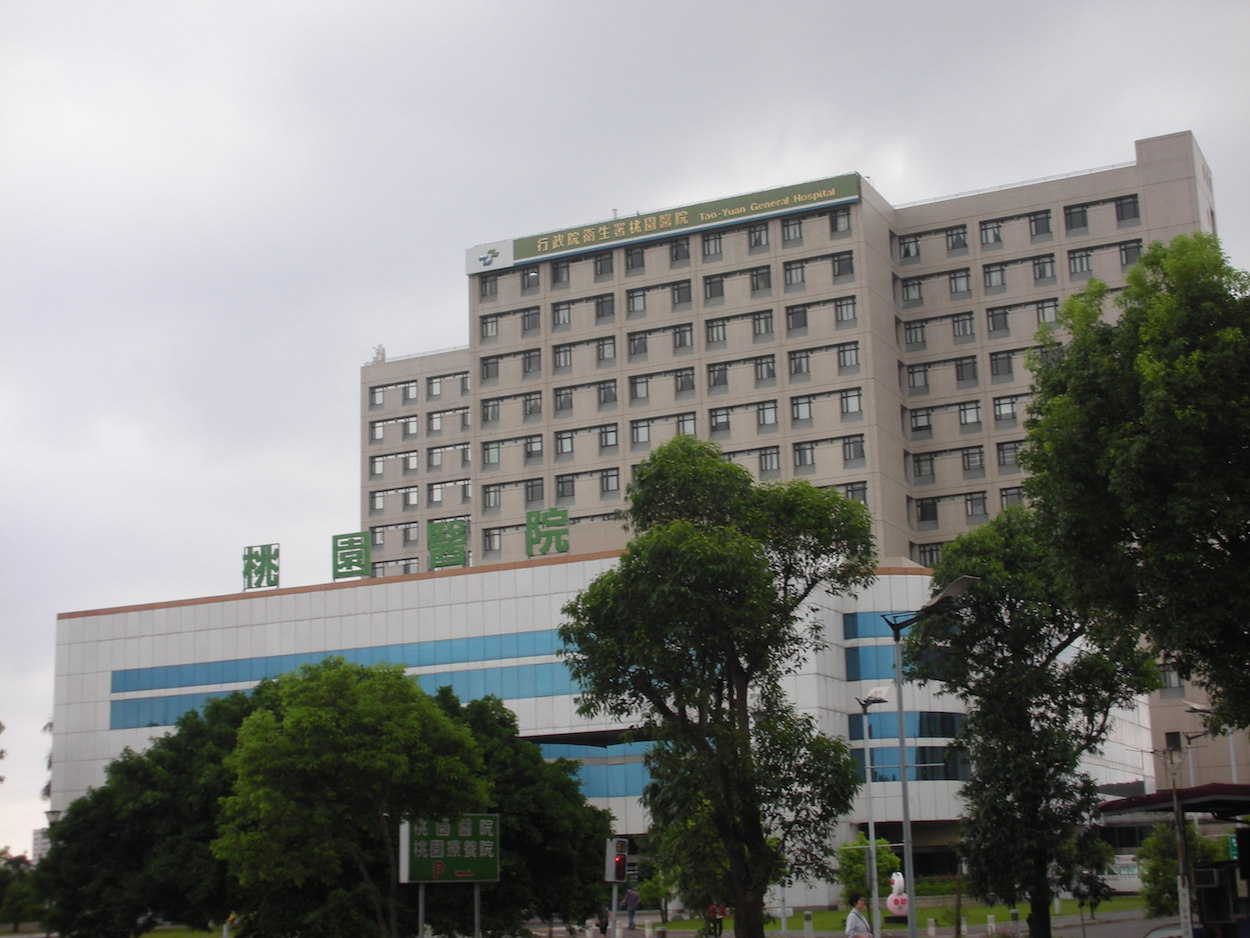by Brian Hioe
語言:
English
Photo Credit: Foxy1219/WikiCommons/CC
DOMESTIC TRANSMISSION of COVID-19 has evidently returned in Taiwan, with the expansion of a cluster of cases linked to the Taoyuan General Hospital. Taiwan previously saw one case of domestic transmission in December, after a New Zealand pilot violated quarantine and passed COVID-19 onto a woman he was having an affair with, which was the first case of domestic transmission of COVID-19 in Taiwan since April. But the Taoyuan General Hospital cluster is the first cluster of COVID-19 cases in Taiwan since April.
This cluster of cases was first reported earlier this month, as a case involving a doctor who became infected with COVID-19 while treating a patient, who then passed COVID-19 onto his partner, a nurse working at the same hospital who was, however, not involved in treating the same patient. Since then, it has been found that five other individuals that worked at the hospital were infected, this being another doctor, three nurses, and a Vietnamese caregiver.
 The Taoyuan General Hospital. Photo credit: Foxy Who/WikiCommons/CC
The Taoyuan General Hospital. Photo credit: Foxy Who/WikiCommons/CC
It is feared that the infected individuals may have passed COVID-19 onto others while going about their daily routine, or while working—in particular, the daughter of the nurse worked at a MOS Burger in a Taoyuan Metro station and so may have come into contact with a number of people, and some of the infected visited traditional markets. A Taipei 101 office has been disinfected and its eleven employees quarantined after they came in contact with one of the cases.
The Central Epidemic Command Center (CECC), which coordinates Taiwan’s response to COVID-19, did not originally publicize that the COVID-19 cluster was at the Taoyuan General Hospital, only specifying that it was at a hospital in northern Taiwan. Nevertheless, Minister of Health Chen Shih-chung revealed which hospital the cluster was at during a press conference, due to what appeared to be a slip of the tongue—though by that time, rumors regarding the hospital the cluster was at had already been circulating.
The CECC was likely hoping to avoid a repeat of the 2003 incident in which over 1,000 patients and medical workers were forcibly quarantined at the Taipei Municipal Hoping Hospital during the SARS outbreak. Patients and medical workers were not allowed to leave the hospital, with the hospital stigmatized as the origin of the SARS outbreak in Taiwan—this resulted in a nurse attempting to jump from the eighth floor of the building and the arrest of staff members that fled.
Consequently, the CECC has adopted the approach of disinfecting the Taoyuan General Hospital, which will no longer accept new patients, and transferring the hospital’s patients elsewhere, rather than the heavy-handed approach barricading the hospital and sealing all residents of the hospital inside. That being said, there has been some stigmatization of medical workers in the hospital, despite that the precise reason why they caught COVID-19 was due to being frontline medical workers working to protect the rest of society from the spread of COVID-19—the stigmatization of medical workers involved in treating COVID-19 is not a particular phenomenon to Taiwan during the pandemic.
與 #總柴 #衛福編編 #一起撐醫護 #好好照顧自己
🐶 大家今天有看到 台北101 的點燈嗎?沒看到沒關係,總柴分享給大家看~
🤓 讓我們一起替防疫第一線的人員打氣、祈福;照顧好自己,我們也能對防疫盡一份心力!🐶…
Posted by 衛生福利部 on Tuesday, January 19, 2021
Facebook post by the Ministry of Health and Welfare of messages praising medical personnel on the electronic billboard on Taipei 101
The CECC is still likely to face demands from sectors of the public calling for severe measures against the Taoyuan General Hospital. This is probably the reason for increased public messaging celebrating the efforts of medical personnel in the fight against COVID-19, as in messages displayed on the electronic billboard on the side of Taipei 101 praising medical personnel publicized by the Ministry of Health and Welfare.
It is expected that this cluster will lead to the cancelation of a number of public events planned for the Lunar New Year, with Hsinchu city having announced the cancelation of the Taiwan Lantern Festival for the first time in the thirty-two years that the festival has been held. In Taipei, the Taipei Book Fair, the Taipei Standard Chartered Marathon, and the traditional Lunar Year Festival on Dihua Street were cancelled, and the Taipei Lantern Festival and the Pingxi Sky Lantern Festival in New Taipei have been postponed.
The CECC has recommended canceling most large Lunar New Year events. This follows suit from the cancelation of western New Year’s events following the December case of domestic transmission. Given the low rates of COVID-19 infection in Taiwan, even a small cluster will have large effects on public gatherings—as well as on the economy, given the economic losses that will occur with the cancelation of new year’s events. It is to be seen whether the government will face any pressure to provide economic measures to make up for lost revenue from the cancelation of new year’s events. One expects continued shifts in measures against COVID-19, as the situation develops.

